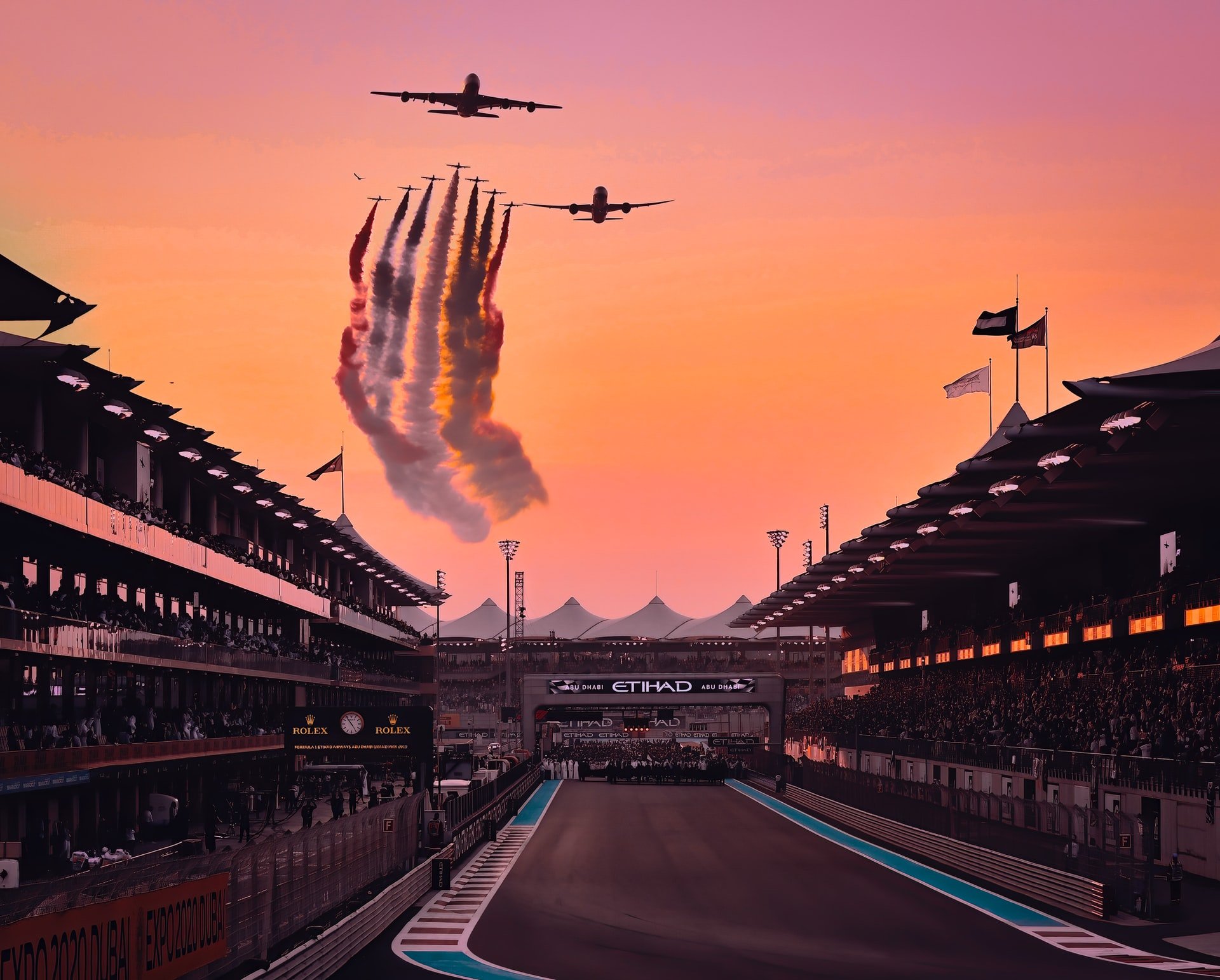If you’ve ever had an interest in Formula 1 but were unsure where to begin, then this guide is for you. Alborz Fallah, founder and publisher of CarExpert.com.au is bringing you up to speed on the fastest motorsport in the world, just in time for the 2021 season.
With the announcement and confirmation of the 2021 Australian Formula 1 Grand Prix (held in Melbourne from November 18th – November 21st), this is now a good chance to get yourself familiar with what the sport offers and why it’s worth following. If you have never been, start planning your trip for this year, as it’s a great opportunity to see what the fuss is about.

What you need to know
Formula 1 is an extremely expensive sport. As an example, in 2018 both Ferrari and Mercedes-Benz spent at least $400,000,000 USD ($550 million) each to run just two Formula 1 race cars for one racing season.
Smaller teams would be spending around $150-250 million USD a year and not really getting very far against the big boys. The cost of the sport has been an on-going debate and from 2022, the FIA (the body that governs all motorsport in the world) is forcing a lazy $170m cost cap per team.
The historical teams in the sport that are still racing today include Ferrari, McLaren, Williams, Mercedes-Benz (Mercedes-AMG) and Alfa Romeo while other teams such as Red Bull, Renault, HAAS, Racing Point, Alpha Tauri are relative new comers (in context of teams like Ferrari) or teams that have changed owners and names.
Formula 1 goes all around the world to many different dedicated racetracks as well as more iconic venues such as Monaco and Melbourne where the cars race through the streets themselves.
Each race distance is set to a maximum of 305km. That means that if a track is 3km long, it would have 101 laps. Races usually take between 90-100 minutes but can often take longer if there are numerous crashes or bad weather. These races are capped at a maximum of 2 hours before the race is cut short.
Why does Formula 1 matter?
Formula 1 cars are the fastest and arguably most efficient cars on the planet. They use a 1.6-litre six-cylinder engine (likely smaller than the one in your car) coupled to a hybrid electric system. Apart from being the pinnacle of motorsport, the many, many billions invested into the sport over the years has led to the invention of a great deal of features that you now find in your road cars.
Almost everything in your current car, from aerodynamics, suspension, transmission to the use of carbon fibre, tyres and brakes has been directly impacted by the many decades of Formula 1 racing. Most importantly, advances in safety cells, crumple zones and other passive safety systems have all been greatly influenced by the historically deadly lessons of Formula 1.
On the face of it, the sport is essentially a marketing tool by car companies and brands that want to prove their product and their association with that product is the best in the business.
For some brands like Ferrari and McLaren, it is also what defines their existence. Like McLaren, Ferrari is a brand that has built its reputation on the back of racing, which directly affects the appeal of its rather expensive road cars. In the same token, Mercedes-AMG – the current dominant player in F1 – uses its race cars and its drivers in a great manner to markets its road cars.
Who is who in Formula 1?
Although you might not have ever watched a Formula 1 race, you might recognise names such as Michael Schumacher, Lewis Hamilton, Ayrton Senna and our very own Daniel Ricciardo.
Formula 1 is very much a sport of personalities. The biggest one in the world right now is Lewis Hamilton, the most successful F1 racing driver in history (and the only black driver), having passed or equalled all the key records set by Michael Schumacher.
The two greats of the sport, Schumacher and Senna are no longer with us. Senna having been killed in an F1 crash in the early 90s and Schumacher who’s been out of the public eye presumed incapacitated since his Ski accident late in 2013.
For the grid in 2021, Hamilton and Mercedes-AMG remain the dominant combination to beat, but the likes of Red Bull’s Max Verstappen, the return of controversial personality Fernando Alonso and the youngest ever pairing of drivers at Ferrari (Charles Leclrec and Carlos Sainz) are going to do everything they can to upset the seven time world champion.
Apart from the drivers, the other notable personalities of F1 are the team principals. Toto Wolf from Mercedes, Mattia Binotto from Ferrari, the ever ruthless Helmut Marko and Gerry Halliwell’s (ginger spice) husband Christian Horner at Red Bull plus billionaires like Lawrence Stroll (who bought a race team for his son Lance to race in) to Gene Haas, who liked the idea of having a F1 team named after him and his CNC machining company.
How fast are Formula 1 cars?
The outright speed of a Formula 1 car is not really the key selling point. Dragsters and even some road cars can go faster in a straight line, but F1 cars are the fastest race cars in the world when presented with a racecourse (corners). Their ability to go into corners at speeds usually three or even four times higher than road-going sports cars is what makes them exceptionally special.
In terms of power, the current flock of Formula 1 cars have around 1,000 horsepower, or about seven times that of the average road car.
Outright, the quickest an F1 car has gone in race conditions is 359.7km/h, a record set by Sebastian Vettel in his Ferrari in 2019.
The speed and laptime of F1 cars is affected by their tyres, engine and driver. During the race, F1 cars are required to change at least one set of tyres and they often need to do that more than once as they have a tendency to destroy their rubber.
Over the years, the outright need for speed and lap times has been muddied with the need to appease the current climate of environmental responsibility, as such, Formula 1 plans to be completely carbon neutral by 2030. That’s not to say it’s going electric, that’s Formula-E and it’s relatively lacklustre in comparison.
How does Formula 1 racing weekend work?
Most race weekends are broken into three days from Friday to Sunday. The Friday is practise, whereby teams and drivers get to learn the track, its limits and their own.
Saturday is qualifying whereby the day is broken down in to three sessions: qualifying 1 (Q1), qualifying 2 (Q2) and qualifying 3 (Q3). Of the 20 cars that are currently racing in a regular Formula 1 weekend, all cars must take part in Q1, which goes for 18 minutes, and the top 15 cars that set the fastest lap times progress to Q2. The top 10 fastest cars from Q2 progress to Q3 and then the top 10 battle it out for who takes Pole position (an honour in F1).
This way come race day on Sunday, the cars that qualified the fastest are at the front and the cars that qualified the slowest are at the back of the starting grid.
Often times there is well and truly less than one second between the top five or six cars, giving you a somewhat deceptive idea of just how close these cars are, but in reality a one second difference in lap time in an F1 car is a lifetime as over a race distance of say more than 60 laps, that means the fastest car finishes one minute before the slower car.
How much do F1 drivers get paid?
Formula 1 driver salaries vary greatly. The likes of Lewis Hamilton are on a reported $70 million a year package (not including personal sponsorship and endorsements which can potentially be double that) while some drivers actually pay to drive.
Australia’s Daniel Ricciardo will be on a reported $40 million (25 million euro) a year from 2021 as he joins McLaren, having earnt similar money the last few years at Renault.
How do I get into Formula 1?
The best thing to do is attend the race in Melbourne later this year. Before then, though, it’s worth watching Drive To Survive on Netflix, which is a very friendly but engaging introduction to Formula 1.
Movies like Rush, Senna, Ferrari: Race to immortality, 1, McLaren and Brabham are also very much worth your time.
Alborz Fallah is the founder and publisher of CarExpert.com.au. Follow him on Instagram here.




















